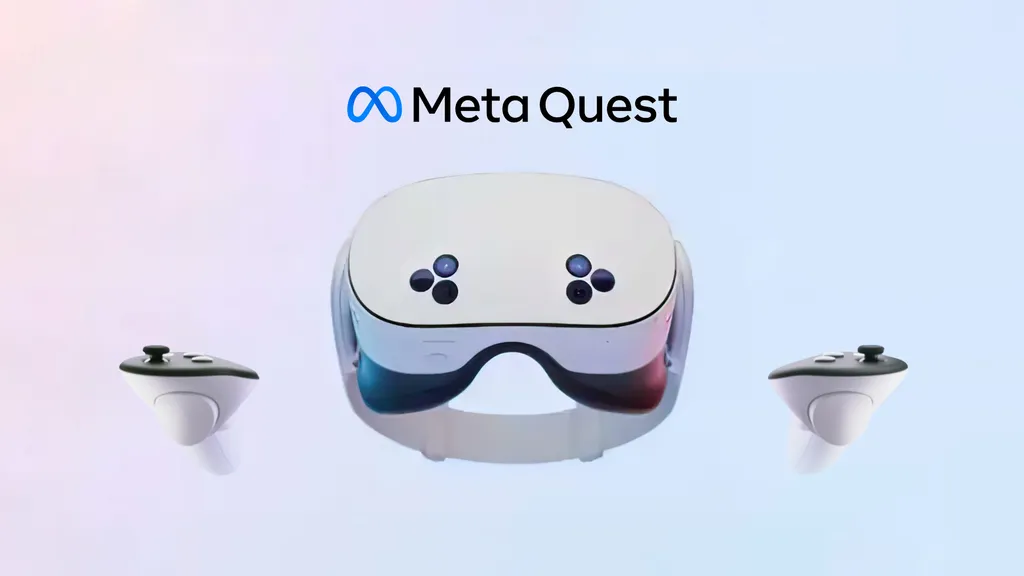Okay, so let’s talk about Mark Zuckerberg, Meta, and the insane future we’re apparently barreling toward faster than we can keep up with. At the 2024 Meta Connect developer conference, Zuckerberg introduced something that sounds like it’s straight out of a sci-fi movie: the Orion AR glasses—holographic smart glasses with a neural interface. Yes, you heard that right. Brain-controlled AR glasses. Welcome to the future, folks.
Orion AR Glasses: The Future is Literally on Your Face
The Orion glasses are a huge leap forward for Meta and, quite honestly, for all of us humans who’ve been living in a world where the coolest thing our glasses can do is transition from clear to sunglasses in the sunlight. These glasses use holographic technology to overlay digital objects onto the real world. So, imagine looking at your desk and suddenly seeing a hologram of a cat—because why not? The idea here is that we’ll be able to interact with these holograms in real-time, creating a new way to experience media, games, and communication.

And the kicker? You won’t just be using hand gestures or voice commands (though you can do that too); the Orion glasses feature something called a neural interface, which means they can be controlled by signals from your brain. Yes, we’re officially entering the “mind control your tech” phase of human history. What a time to be alive, am I right?
Mark Zuckerberg didn’t give us an exact timeline for when we can expect these mind-blowing glasses to hit the shelves, but the presentation was enough to get the tech world buzzing about the possibilities. This is not the kind of stuff we’ll see tomorrow, but it’s a peek into what Meta’s working on for the next era of computing. And while the glasses might not be available for sale right now, we’re clearly heading toward a world where wearable tech isn’t just about looking cool but about fundamentally changing how we interact with the world.
A Hologram That Talks Like Judi Dench?
But wait, there’s more! Meta didn’t just stop with AR glasses. They doubled down on their AI offerings too. Now, Meta AI can talk to you in the voices of celebrities, including Dame Judi Dench, John Cena, Keegan-Michael Key, and Awkwafina. That’s right—if you’ve ever dreamed of having a conversation with Judi Dench or getting motivational words from John Cena, Meta’s got your back. This feature adds a little personality to their AI assistant, and honestly, it’s probably going to make your to-do list feel a lot fancier when Judi Dench reminds you to pick up the laundry.

Meta’s investment in AI is massive, and they’re rolling out these celebrity AI voices as part of their broader Llama 3.2 update. Llama 3.2 is a beast of an AI language model that can understand both images and text. That’s right—text is no longer the only thing AI can handle. We’re talking multimodal AI that can see, understand, and respond to the world like never before. With more than 500 million users already interacting with Meta’s AI tools across Facebook, Instagram, and WhatsApp, this AI expansion is a big deal. And the celebrity voices are just the tip of the AI iceberg.
Quest 3S: VR for the Rest of Us
Now, let’s talk about the Quest 3S, Meta’s latest mixed-reality headset. At just $299.99, this thing is poised to be the next big hit in the world of VR/AR. It’s got all the bells and whistles we’ve come to expect, and Meta is clearly hoping to make these headsets more accessible. They’ve also slashed prices on their previous high-end models, signaling that they’re serious about getting this tech into as many homes as possible.

But it’s not just about fun and games (though, seriously, playing virtual Pong with a friend through these new devices sounds amazing). Meta is betting that mixed reality will become an integral part of our everyday lives. Whether it’s learning, creating, or connecting with people halfway across the world, these headsets are meant to bridge the gap between our digital and physical experiences in ways we’re only starting to imagine.
Post Meta Connect: Will Orion Glasses Be the Next iPhone?
While the Orion AR glasses are still in their prototype phase, Meta’s vision for the future is clear: they want these to be the next iPhone—an indispensable part of our daily lives. However, the tech world is tough, and Meta has faced its fair share of challenges in developing AR technology. The Orion glasses are a huge technical hurdle, with Meta’s engineers still working out the kinks before these glasses are ready for prime time.
That being said, the future looks pretty incredible. Imagine ditching your smartphone for a pair of glasses that project everything you need into your field of vision: emails, texts, games, or even virtual meetings where your colleague is a hologram sitting across the room from you. This isn’t just some far-off dream—it’s something Meta wants to make a reality within the next few years. Of course, these glasses will come with a hefty price tag at first, but over time, we could see this tech become more accessible to the average person.
A World with Less “Stuff”
Zuckerberg mentioned during the conference that the goal of products like Orion is to move away from physical devices like desktop computers and smartphones. In his ideal future, the hardware we rely on today will be replaced by wearable tech that integrates digital information with our everyday surroundings. Essentially, it’s a world where your glasses can do everything your smartphone can—except with less clutter and a lot more style.
So, what does all of this mean for us? Well, the Orion AR glasses are a glimpse into a future where technology becomes even more invisible, where the line between the digital and physical worlds continues to blur. Whether it’s using a neural interface to control digital objects or having your AI assistant talk to you like a celebrity, Meta is setting the stage for a future that feels less like a gadget-filled dystopia and more like a holographic-enhanced dream.
Stay tuned, because the future is happening faster than we think, and it’s going to be a wild ride.



